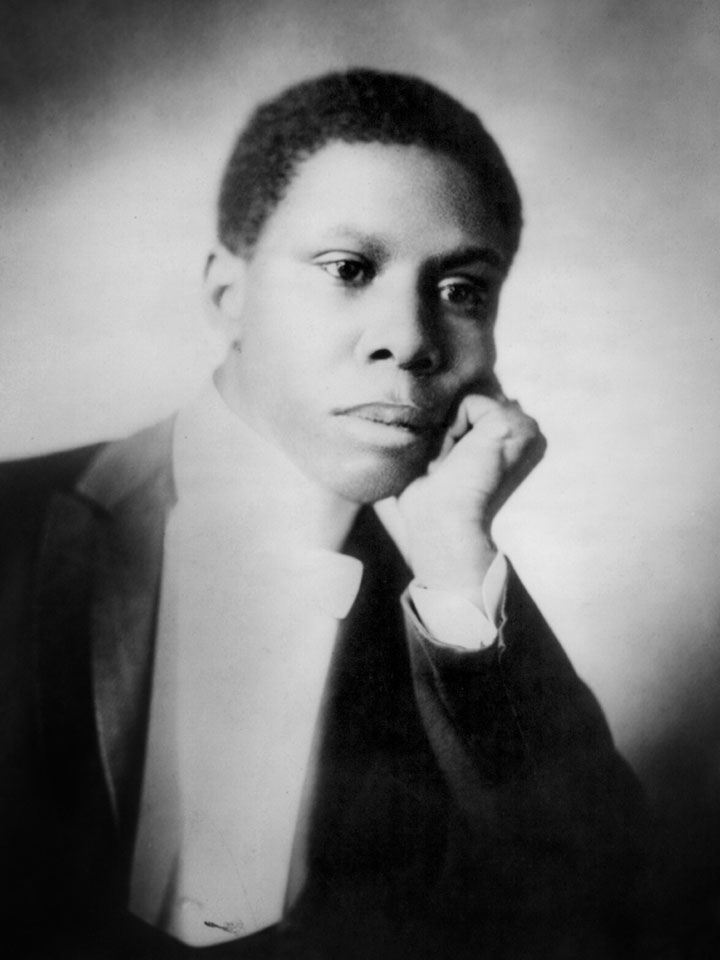Paul Laurence Dunbar
Birth Name: Paul Laurence Dunbar
Born: June 27, 1872 in Dayton, Ohio
Died: February 9, 1906 in Dayton, Ohio
Time Period: Victorian
Expertise: Editor, Elevator Operator, Essayist, Journalist, Lyricist, Novelist, Playwright, Poet, Short Story Writer
Known For: Folks From Dixie, Lyrics of Lowly Life, Majors and Minors, Oak and Ivy, The Heart of Happy Hollow

Quotes
Interesting quotes by Paul Laurence Dunbar
“I hope there is something worthy in my writings and not merely the novelty of a black face associated with the power to rhyme that has attracted attention.”
“With our short sight we affect to take a comprehensive view of eternity. Our horizon is the universe.”
“Hope is tenacious. It goes on living and working when science has dealt it what should be its deathblow.”
ADVERTISEMENT
Bio
A brief biography of Paul Laurence Dunbar
Paul Laurence Dunbar was born on June 27, 1872 in Dayton, Ohio. His parents were from Kentucky and were slaves prior to the Civil War. He wrote from an early age, and had his first poems published in a local newspaper by the age of 16.
Dunbar was the first African-American writer known internationally for his poems, novels, and short stories. He even wrote the lyrics to the first all-African-American Broadway musical, In Dohemy.
Paul gained national notoriety after being published in Harper’s Weekly, thanks to a glowing review by literary critic, William Dean Howells, who gave much praise to his poems written in dialect. Due to his poetical success, Dunbar was able to meet and befriend other prominent black figures of the time, including Frederick Douglass, Booker T. Washington and James David Corrothers.
Dunbar had a short career, but wrote prolifically—outputting a dozen poetry books, four books of short stories, four novels and a play. He was the first African-American writer to use white society as the focal point of a book, which he did in his novel, The Uncalled.
He was married to Alice Ruth Moore, a poet and teacher, on March 6, 1898. They moved to LeDroit Park in Washington D.C. when Dunbar landed a job at The Library of Congress in 1897. In 1900, Paul was diagnosed with tuberculosis and was prescribed whiskey by his doctors to help mitigate the symptoms. His wife and he moved to Colorado, being told the cold, dry mountain air would be beneficial for his condition. They remained together until 1902, when Paul nearly beat her to death. They never divorced, but remained separated after the incident.
Being apart from his wife and dealing with his illness led to depression, and Dunbar medicated himself by drinking heavily, which further damaged his health. Paul Laurence Dunbar died of tuberculosis on February 9, 1906, in Dayton, Ohio, at the young age of 33 and was buried nearby at Woodland Cemetery in Dayton.
ADVERTISEMENT
Works by Paul Laurence Dunbar

Download free Paul Laurence Dunbar books. Listen to Paul Laurence Dunbar audiobooks.

ADVERTISEMENT
External Links for Paul Laurence Dunbar
Paul Laurence Dunbar on Wikipedia
https://en.wikipedia.org/wiki/Paul_Laurence_DunbarPaul Laurence Dunbar on Wikisource
https://en.wikisource.org/wiki/Author:Paul_Laurence_DunbarADVERTISEMENT
Other Authors

See other authors of the Victorian period
- Emilio Aguinaldo
- Anonymous
- Ethel Lynn Beers
- Madison Cawein
- Mortimer Collins
- James David Corrothers
- Eugene Debs
- Frederick Douglass
- Thomas Hardy
- Henry Wilmarth Hazzen
- William Hope Hodgson
- Henry Wadsworth Longfellow
- Edgar Allan Poe
- Robert Louis Stevenson
- Bram Stoker
- Alfred, Lord Tennyson
- Mark Twain
- August Vogel
- Walt Whitman
- John Greenleaf Whittier
- Oscar Wilde
- Kaiser Wilhelm II

